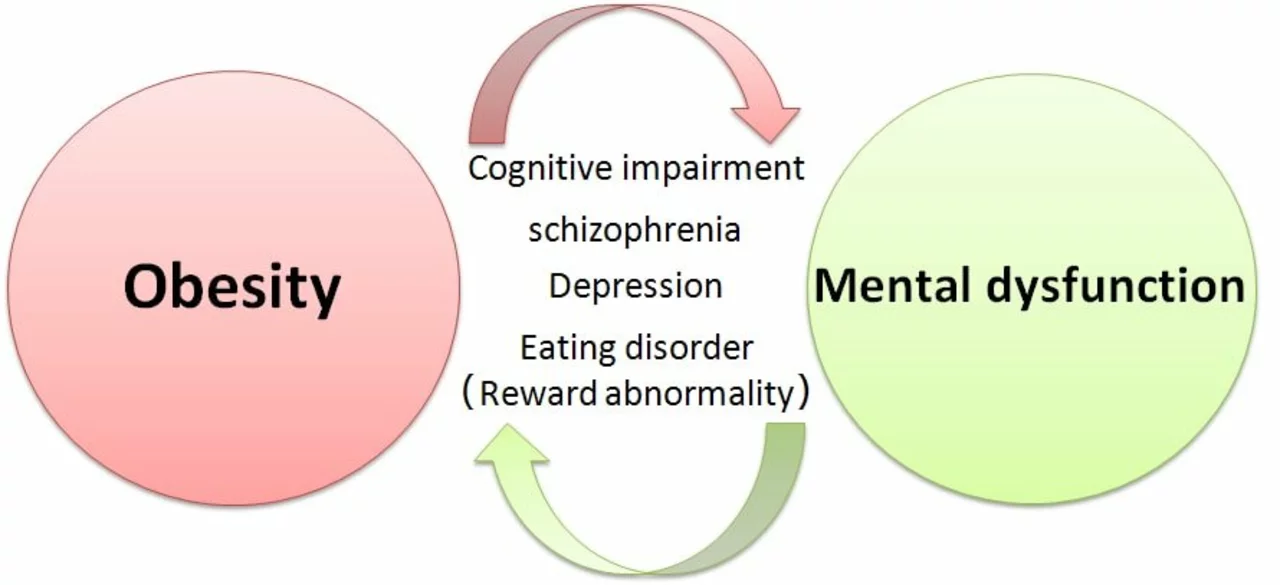Depression Symptoms: What to Look For and Why They Matter
If you’ve ever felt down for a few days, that’s normal. But when low mood sticks around and starts messing with everyday tasks, it could be depression. Knowing the signs helps you act fast, whether you’re checking on yourself or a friend.
Physical clues that often get missed
Depression isn’t just a sad mind; it hits the body too. You might notice constant fatigue even after a full night’s sleep, or find yourself sleeping way more than usual. Headaches, stomach aches, and muscle tension show up without any clear medical reason. These physical signals are the brain’s way of saying something’s off.
Mental and emotional red flags
Beyond tiredness, depression brings a heavy sense of hopelessness. Things that used to bring joy feel flat or pointless. You may catch yourself replaying negative thoughts over and over – like a broken record of self‑criticism. Difficulty concentrating, forgetting simple tasks, or feeling indecisive are also common.
Social withdrawal is another big hint. Suddenly you avoid friends, skip gatherings, or ignore messages. It’s not just shyness; it’s a loss of interest in connections that used to matter. This can make the problem feel even bigger because isolation fuels more low mood.
Changes in appetite are easy to spot. Some people lose their appetite completely and drop weight quickly, while others binge on comfort foods and gain weight. Both reactions point to the same underlying imbalance.
If thoughts of self‑harm or suicide appear, treat them as an emergency. Even fleeting ideas deserve immediate attention from a professional or trusted person. It’s better to be safe than sorry.
So how do you turn this awareness into action? First, write down what you notice – physical tiredness, mood swings, sleep changes, anything. Sharing that list with a doctor makes the conversation smoother and helps them rule out other health issues.
Second, try small lifestyle tweaks. A short walk each day, regular meals, and limiting alcohol can lift mood slightly. These aren’t cures, but they give your brain better conditions to respond to treatment.
Finally, remember you’re not alone. Many people experience these symptoms at some point, and help is available. Reaching out to a therapist, counselor, or support group often brings relief faster than trying to go it alone.
Recognizing depression symptoms early gives you the best chance to get back on track. Keep an eye on your body and mind, note any changes, and don’t hesitate to ask for help when you need it.

How to create a mental health plan to address symptoms of depression
- May, 29 2023
- 17
Creating a mental health plan for addressing symptoms of depression begins with recognizing the signs and seeking professional help. It is essential to establish a support network, which includes friends, family, and mental health professionals. Incorporating self-care activities, such as exercise, meditation, and proper nutrition, can also improve mental well-being. Setting realistic goals and tracking progress can help measure improvement over time. Finally, being patient and kind to oneself during this process is crucial, as recovery can take time and perseverance.
Categories
- Health and Medicine (62)
- Health and Wellness (57)
- Medicine (37)
- Women's Health (11)
- Mental Health (9)
- Men's Health (7)
- Beauty and Wellness (4)
- Health Information (4)
Archives
- February 2026 (8)
- January 2026 (25)
- December 2025 (28)
- November 2025 (25)
- October 2025 (27)
- September 2025 (14)
- August 2025 (3)
- July 2025 (2)
- June 2025 (2)
- May 2025 (3)
- April 2025 (4)
- March 2025 (4)
- online pharmacy
- medication safety
- dietary supplement
- health benefits
- dietary supplements
- generic drugs
- prevention
- fertility
- online pharmacy Australia
- side effects
- QT prolongation
- medication side effects
- diabetes medications
- GLP-1 agonists
- nocebo effect
- brand vs generic
- treatment
- treatment options
- benefits
- connection
